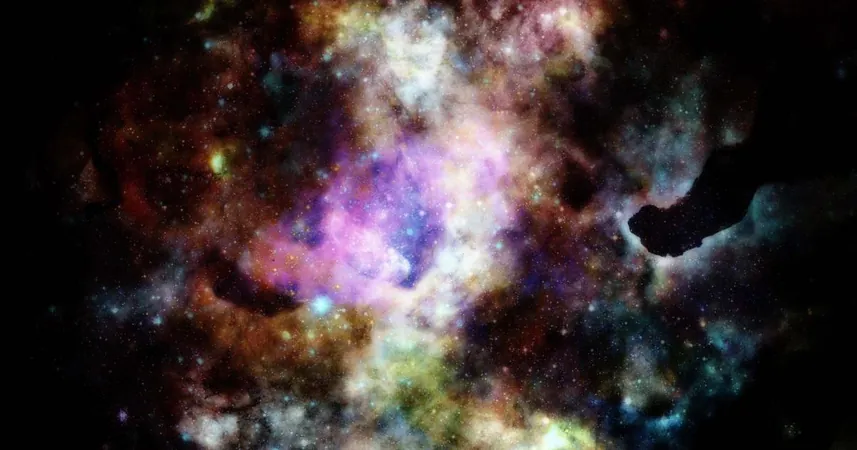
Forget the Big Bang! Scientists Propose the Universe 'Bounced' Out of a Black Hole
2025-06-10
Author: Ming
A Radical New Theory About Our Universe's Origin
In a groundbreaking new study, researchers have thrown out the conventional Big Bang theory, proposing instead that our Universe emerged from a cosmic 'bounce' triggered by a black hole in a larger universe. This fascinating hypothesis, published in the journal *Physical Review D*, is stirring excitement in the scientific community.
What If The Big Bang Is Wrong?
Professor Gaztanaga, the lead researcher, argues that the Big Bang begins with a point of infinite density, a moment that raises serious questions about the laws of physics as we know them. “This is a deep theoretical problem that suggests we don’t fully understand the Universe's beginnings,” he explains.
Rethinking the Collapse of Matter
Rather than starting with the expansion of the Universe and trying to determine its origin, Gaztanaga and his team took a daring approach: they investigated the consequences of an over-density of matter collapsing under its own gravity. This led to an astonishing conclusion: such a collapse doesn’t necessarily result in a singularity. Instead, the matter can reach an extreme high-density state and subsequently 'bounce' back, forming a new Universe.
A Universe Within Our Grasp
The researchers argue that this 'bounce' is allowed under the frameworks of general relativity and quantum mechanics. Gaztanaga remarks, “What emerges on the other side of the bounce is a Universe remarkably similar to our own. Surprisingly, this rebound produces a phase of accelerated expansion not due to some hypothetical field, but rather as a direct result of the bounce itself.”
Promises of Testable Predictions
This innovative model is not just a theoretical whim; it presents testable predictions, making it a robust contender in explaining cosmic phenomena. Gaztanaga highlights that this new approach reveals our Universe is slightly curved, akin to the Earth’s surface.
New Insights into Cosmic Mysteries
Moreover, the implications of this model stretch far beyond the bounce theory itself. It could potentially illuminate major mysteries, such as the origins of supermassive black holes, the elusive nature of dark matter, and the evolution of galaxies.
Future Confirmation Through Space Missions
To validate their claims, Professor Gaztanaga, who coordinates the ARRAKIHS ESA space mission, noted that the four ultra-sensitive telescopes aboard the satellite could be pivotal. These telescopes are designed to detect ultra-low surface brightness structures, essential for understanding how galaxies develop and grow.
In summary, this radical new perspective on the Universe's birth could revolutionize our understanding of cosmic history and structure. If proven true, it might just redefine the very fabric of our reality.




 Brasil (PT)
Brasil (PT)
 Canada (EN)
Canada (EN)
 Chile (ES)
Chile (ES)
 Česko (CS)
Česko (CS)
 대한민국 (KO)
대한민국 (KO)
 España (ES)
España (ES)
 France (FR)
France (FR)
 Hong Kong (EN)
Hong Kong (EN)
 Italia (IT)
Italia (IT)
 日本 (JA)
日本 (JA)
 Magyarország (HU)
Magyarország (HU)
 Norge (NO)
Norge (NO)
 Polska (PL)
Polska (PL)
 Schweiz (DE)
Schweiz (DE)
 Singapore (EN)
Singapore (EN)
 Sverige (SV)
Sverige (SV)
 Suomi (FI)
Suomi (FI)
 Türkiye (TR)
Türkiye (TR)
 الإمارات العربية المتحدة (AR)
الإمارات العربية المتحدة (AR)